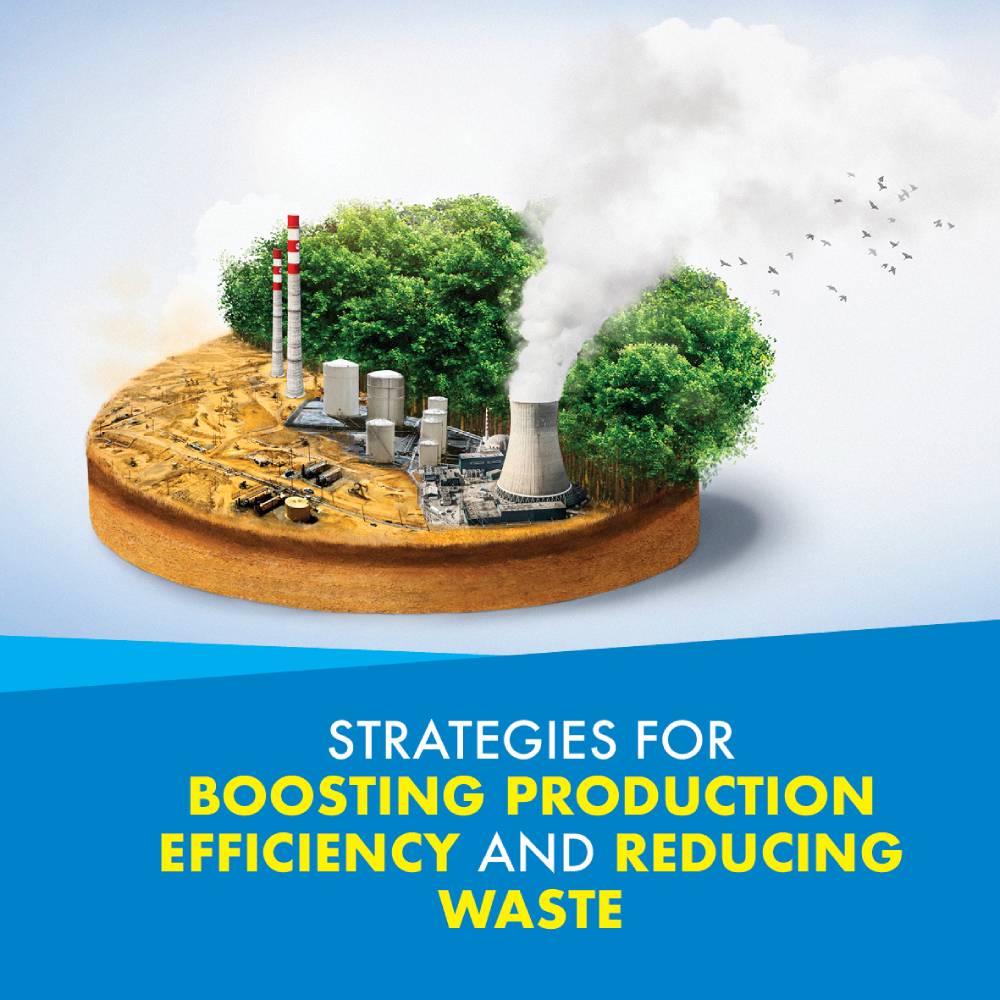
Strategies for Boosting Production Efficiency and Reducing Waste
In today’s competitive business landscape, optimizing production processes is crucial for sustained growth and profitability. Implementing strategies to enhance production efficiency and minimize waste not only improves the bottom line but also contributes to sustainability goals. Here are several effective strategies to streamline operations and foster a leaner, more efficient production environment.
Lean Manufacturing Principles:
Embrace lean manufacturing principles to eliminate waste and optimize efficiency. Identify and eliminate non-value-added processes, reduce excess inventory, and ensure a smooth flow of materials throughout the production cycle.
Invest in Technology:
Leverage advanced technologies such as automation, data analytics, and artificial intelligence to enhance production processes. Automation can reduce human errors, increase production speed, and improve overall efficiency. Data analytics provide insights for informed decision-making, while AI can optimize production scheduling and resource allocation.
Employee Training and Engagement:
Ensure that your workforce is well-trained and engaged in continuous improvement initiatives. Empower employees with the necessary skills to identify and address inefficiencies on the production floor. Engaged employees are more likely to contribute innovative ideas and actively participate in waste reduction efforts.
Optimized Supply Chain Management:
Collaborate closely with suppliers to ensure a streamlined and reliable supply chain. Implement just-in-time inventory practices to reduce excess stock and associated carrying costs. A well-optimized supply chain minimizes delays and disruptions, enhancing overall production efficiency.
Energy Efficiency Measures:
Implement energy-efficient practices to reduce operational costs and environmental impact. This includes investing in energy-efficient equipment, optimizing production schedules to minimize energy-intensive processes during peak times, and regularly maintaining machinery to ensure optimal performance.
Continuous Monitoring and Improvement:
Establish key performance indicators (KPIs) to monitor production efficiency and waste metrics regularly. Implement a culture of continuous improvement, encouraging employees to identify and address inefficiencies as they arise. Regularly review and update processes based on performance data.
Quality Control Measures:
Implement stringent quality control measures to minimize defects and rework, which can significantly contribute to waste. Investing in advanced quality assurance technologies and ensuring rigorous testing protocols will result in higher-quality products and fewer production setbacks.
Sustainable Practices:
Embrace sustainability in production processes by reducing waste and adopting environmentally friendly practices. This not only aligns with corporate social responsibility but can also attract environmentally conscious consumers and business partners.
By adopting these strategies, businesses can create a more efficient, sustainable, and competitive production environment. Continuous improvement and a commitment to waste reduction will not only benefit the company’s bottom line but also contribute to a more sustainable and responsible industry. (Vid/DM)
Are you fascinated by the intricacies of Industrial Engineering?
If you are deeply passionate about unraveling the complexities of Industrial Engineering, Swiss German University (SGU) offers a transformative gateway to a thriving career in this dynamic field. At SGU, students pursuing Industrial Engineering undergo rigorous and comprehensive training. Our program equips students with cutting-edge skills and knowledge essential in the ever-evolving industrial landscape. Upon completion of the program, students could obtain industry-recognized certifications tailored to their interests and career goals. These certifications not only augment their expertise but also facilitate a seamless transition into the professional arena. Graduates with a bachelor’s degree in industrial engineering from SGU are well-prepared to explore diverse and global employment opportunities. In the realm of innovation, creativity plays a pivotal role in achieving success. Our program is meticulously crafted to nurture creative and inventive thinking among students. By choosing SGU for your Industrial Engineering education, you embark on a transformative journey that hones your passion and readies you for a rewarding career in the ever-evolving world of industrial innovation. Explore our detailed curriculum by clicking the button below. If you are eager to delve deeper into the realm of Industrial Engineering at SGU, feel free to connect with our dedicated consultants. Your exciting odyssey toward a fulfilling career in Industrial Engineering begins here.
About SGU
SWISS GERMAN UNIVERSITY (SGU) is an international university in Indonesia, was established in 2000 as a joint effort between Indonesia, Germany, Switzerland, and Austria. We are the pioneer in offering international curricula in Indonesia. Qualified students can graduate with a Double Degree from Indonesia and Germany, which SGU provides in cooperation with partner universities; surely a valuable tool for your future careers. Ever since its establishment, SGU has been dedicated to delivering quality education in line with international standards and aims to develop skilled professionals who meet the demands of the industry. In order to achieve its objectives, SGU offers quality-oriented learning through 16 Bachelor’s Degree Programs and 6 Master’s Degree Programs ranging from Engineering, Information Technology, and Business to Life Sciences and Social Sciences. Furthermore, with small class sizes, and with English as the medium of instruction, you can look forward to pursuing your tertiary education and degree with full confidence.

